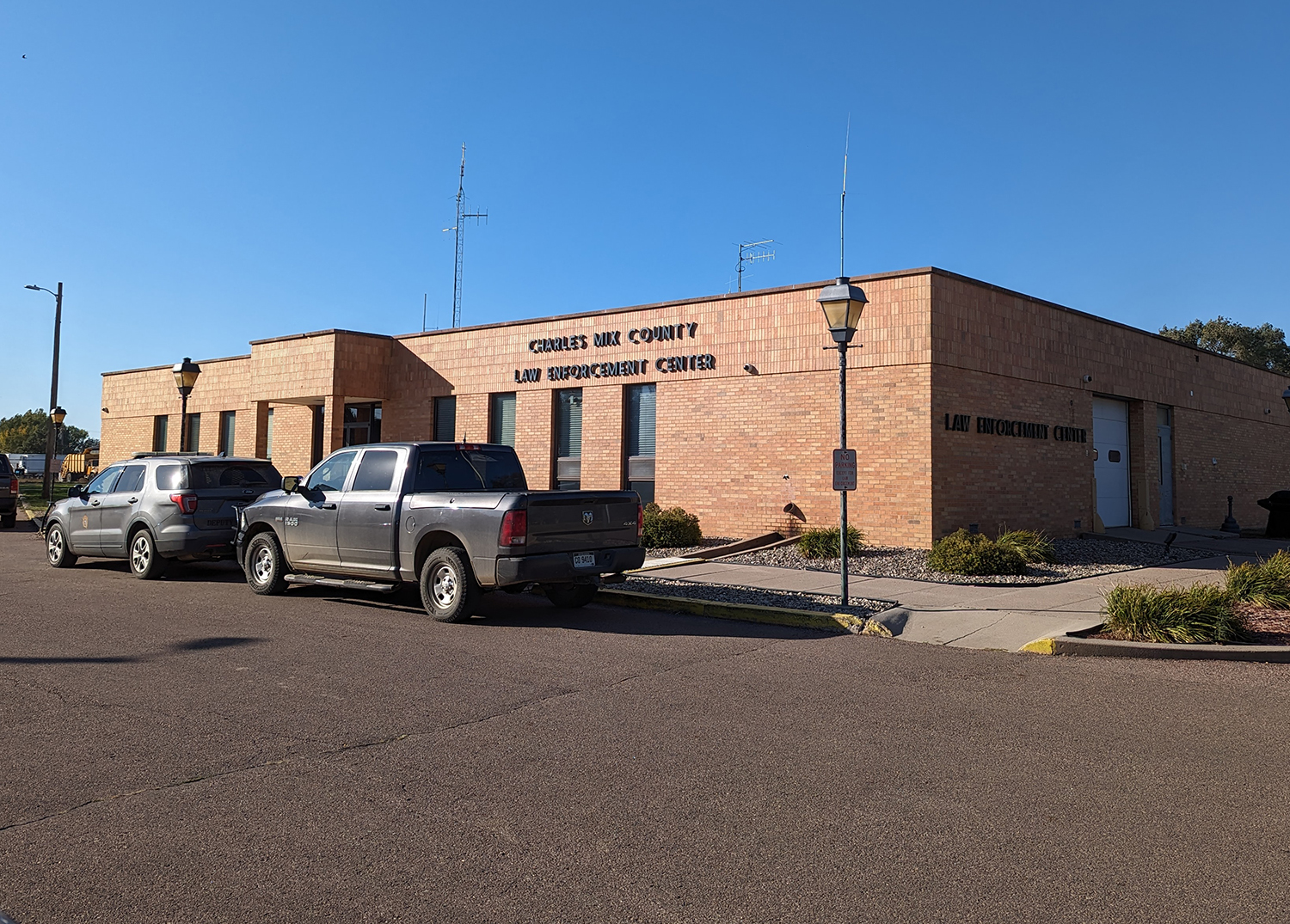
John Hult, South Dakota Searchlight
A double stabbing that left one man dead and another hospitalized led to a rare extradition order to state custody from the Yankton Sioux Tribe this week.
Mackenzie Antelope, 18, of Lake Andes, is charged with alternate counts of first- and second-degree murder and first-degree manslaughter in the death of 22-year-old Lake Andes resident Quinlan Ream.
Antelope is accused of stabbing Ream and 33-year-old Dylan Oulette of Lake Andes in a motel in that Charles Mix County town. He’s facing an aggravated assault charge for the Oulette stabbing.
Oulette stumbled into the Lake Andes Gus Stop on May 21 at 10:41 p.m. with multiple stab wounds and reported the stabbing, according to an affidavit signed Tuesday in Antelope’s criminal case file. He was soon taken to a hospital in Sioux Falls.
Sheriff’s deputies followed a trail of blood to the Landing Strip hotel, located across a highway from the Gus Stop, to find Ream’s body on the floor of one of the rooms.
Police later interviewed two witnesses who’d been drinking with the victims and suspect that evening, the affidavit says, and heard a description of a verbal altercation that ended with Antelope stabbing the victims. From his hospital room, Oulette identified Antelope as his assailant.
Antelope fled from the scene onto Yankton Sioux tribal land after the stabbing. State and county officers typically cannot arrest those suspected of committing state crimes if the suspect crosses onto Native land, and tribal officers cannot arrest suspects on state charges.
The Yankton Sioux Tribe’s jurisdiction is “checkerboard,” meaning tribal and other lands intermingle. Some of South Dakota’s nine tribal nations, including Rosebud and Oglala, are situated on larger reservations with encompassing boundaries.
Recent controversies over jurisdictional challenges
Jurisdictional challenges have framed controversies between Gov. Kristi Noem and tribal leaders in recent months. Noem has called upon tribal leaders to ink memoranda of understanding with the state to allow outside law enforcement to assist tribal law enforcement.
Tribal officials, meanwhile, have bristled at Noem’s accusations that some of them are “personally benefiting” from an infiltration of drug cartels onto tribal lands – something many tribal leaders dispute, even though drugs originally produced by cartels are widely available.
Attorney General Marty Jackley and Noem collaborated to launch a tribal law enforcement academy recently as a way to encourage more recruits to join tribal agencies. That basic certification course begins in Pierre on Monday.
Noem also recently called a tribal law enforcement summit and invited tribal leaders, even as the governments of all nine tribes have voted to banish her from their lands.
On Thursday, Oglala Sioux Tribe President Frank Star Comes Out said in a press release that the summit is a “divide and conquer tactic,” and said he would not attend.
Jackley, meanwhile, has begun meeting with tribal officials on law enforcement issues. He met with the Lower Brule Tribal Council on Thursday.
In a recent opinion column, Jackley stressed that state and tribal law enforcement work together when necessary to overcome jurisdictional challenges.
“I do not accept ‘jurisdiction’ as an impediment to the ability and responsibility of law enforcement to collectively protect everyone in South Dakota, on and off reservations,” Jackley wrote, in part. “We can always strive to do better. Recent publicity has shed light on the importance to build upon and strengthen what law enforcement is already doing to protect all South Dakotans.”
Stabbings prompt rare level of cooperation
Antelope’s arrest stands as an example of how such collaborations play out in the absence of formal agreements between state and tribal agencies.
To facilitate Antelope’s Wednesday arrest across the jurisdictional border, the tribe’s chairman first needed to sign an extradition order, Yankton Sioux Tribal Police Chief Edwin Young said Friday.
That order, once ratified in tribal court, allowed Young’s department to apprehend Antelope on Wednesday. Antelope waived an extradition hearing and will make his first appearance in court next week in Lake Andes.
Young, who started with the YST police in 2016, says he can only recall two other times when such an extradition order was signed. Misdemeanors and lower-level felonies typically don’t see intervention from the tribe’s chairman, he said.
“The county government and tribal government don’t always see eye-to-eye, but on a major incident like this we have to work together,” Young said.
In a press release, Charles Mix County State’s Attorney Steve Cotton said the Charles Mix County Sheriff’s Office, the state Division of Criminal Investigation and Yankton Sioux Tribal Police worked together to conduct interviews on both sides of the state-tribal border and across two counties.
Cotton lauded the cooperation.
“This case is a prime example of tribal, state, and county governments working together,” Cotton wrote. “Due to this collaborative effort, law enforcement officers from multiple agencies were able to act swiftly in order to protect the public.”
Ream, according to his obituary, attended college in Kansas after graduating high school in Montana. He had worked at Fort Randall Casino, and recently became a father.
